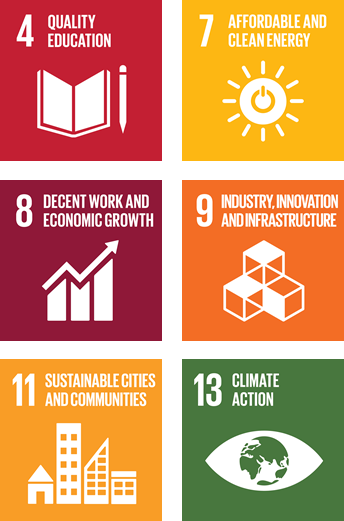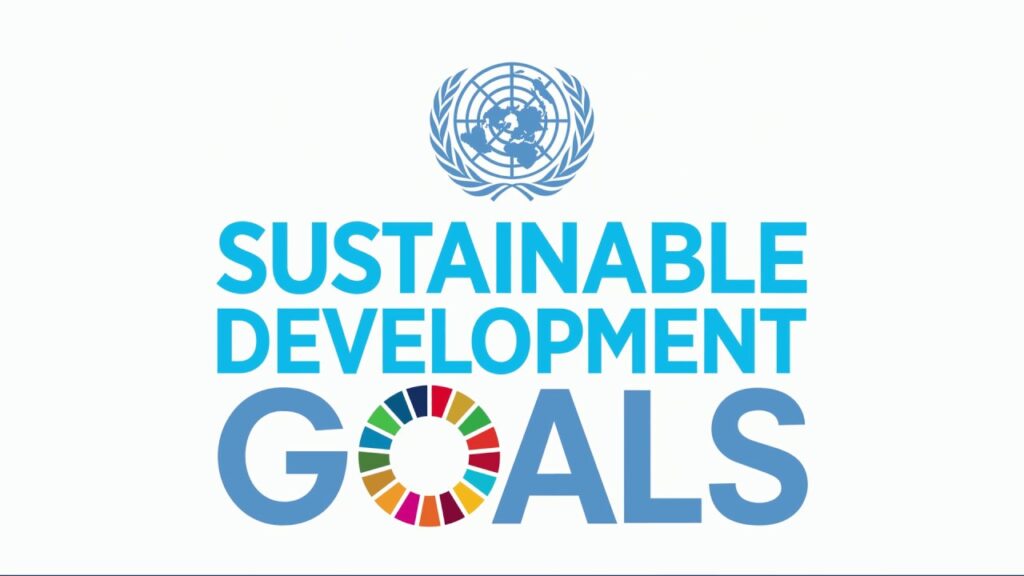Copel and the SDG
The Sustainable Development Goals, the SDG, are part of the 2030 Agenda – Transforming Our World. These are 17 goals to be met between 2015 to 2030. A plan of action for eradicating poverty, protecting the planet and ensuring people reach peace and prosperity.
Since 2012, in the Rio+20 Conference, the United Nations have been working with governments, civil society and other partners for taking advantage of the leverage generated by the Millennium Development Goals – MDG (2000 to 2015 Agenda) and taking a post-2015 development agenda forward, a much more ambitious one. In September 2015 the 193 Member States of the United Nations (UN) adopted the new 2030 Agenda.
Companies
Companies are vital partners in achieving the Sustainable Development Goals. They can contribute by assessing the impacts of their core activities, setting challenging targets, and communicating their results transparently. They can also develop actions, aligned with their businesses, that aim at the sustainable development of the territory.
Copel
Copel considers the SDG to be a great opportunity to showcase its position relative to sustainable development in line with its value-adding strategy.
On March 8, 2016, signed the Document of Adhesion to the We Can Paraná Movement, confirming its participation in the work toward meeting the SDG. This work group, formed by several institutions and companies, determined 9 commitments that shall unfold into goals, projects and actions toward conquering the 17 SDG.
SDG in the Electricity Industry
Copel is a signatory of the UN Global Compact, whose objective is joining efforts of countries, companies, institutions and civil society in the pursuit of sustainable development, with a comprehensive agenda relative to ESG principles (Environmental, Social and Governance).
The Brazil Network of the UN Global Compact has assessed the adoption of the UN Sustainable Development goals (SDG) by companies in the electricity industry. The Energy & Climate Work Group launched, in 2018, the publication “Integration of the SDG in the Brazilian Electricity Industry (SEB)”. In conjunction with the University of São Paulo – USP, the project assessed how companies in the industry incorporate the SDG in their strategies and operations.
Prioritized SDG at Copel
Copel has prioritized SDG 4 and the SDGs most relevant to companies in the Brazilian electricity sector in its business activities. Therefore, Copel’s priority SDGs are:
- SDG 4 – Quality Education
- SDG 7 – Clean and Accessible Energy;
- SDG 8 – Decent Work and Economic Growth;
- SDG 9 – Industry, Innovation and Infrastructure;
- SDG 11 – Sustainable Cities and Communities;
- SDG 13 – Action against Global Climate Change.
To read the complete publication, access.


Other voluntary commitments by Copel are:
- Agenda 2030;
- Stakeholder Capitalism;
- Call to Action for Governments to Fight Corruption;
- Combating Sexual Exploitation of Children and Adolescents;
- Combating Discrimination and Valuing Diversity;
- Brazilian Business Commitment to Biodiversity;
- Conselho Paranaense de Cidadania Empresarial (Paranaense Business Citizenship Council);
- Business Contribution for the Promotion of a Green and Inclusive Economy;
- Declaration Call to Action for Governments to Fight Corruption;
- Pro-Ethical Companies;
- Entrepreneurs for the Climate;
- Eradication of Child, Forced or Compulsory Labor;
- National Movement ODS We Can;
- Movement Transparency 100%;
- Movement Net Zero Ambition;
- Business Pact for Integrity and Against Corruption;
- Global Compact (UN);
- Pact for Integrity;
- Prevention of moral harassment and sexual harassment;
- Women Empowerment Principles (WEP);
- Principles for Responsible Manegement Education (PRME);
- Pro-Gender and Race Equity Program;
- Network of Companies for Learning and Eradication of Child Labor; and
- Respect for free trade union association and the right to collective bargaining.




